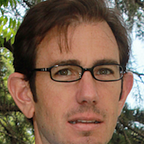Medically Clear # 25: Sleep
The two best physicians of them all — Dr. Laughter and Dr. Sleep
— Gregory Dean Jr.
We might have to throw Dr. Feelgood into the mix here too.
Listen to the podcast here or in iTunes (The Medically Clear Podcast)
We are just beginning to understand the physiological functions of sleep — which include encoding memories via nerve-signal repetition; increased cellular production of proteins that are likely involved in repairing damage from stress, ultraviolet light and dietary toxins; and spikes in growth-hormone release in young people. So, what about employing Dr. Temazepam or Dr. Lorazepam? I suspect we’ve all been there, but what if there were a less sedating option. Calling Dr. Melatonin from the Pineal gland… There was a time when melatonin supplementation seemed like clever way to market placebo to long-distance travelers. But, the evidence has evolved and melatonin is now a recommended by The American Academy of Sleep Medicine for daytime sleep for night shift workers with shift work disorder. Also, in the aptly titled journal Work, consider this recent randomized study of refinery workers in Iran. The investigators tested the effect of 3mg of melatonin taken thirty minutes prior to sleep in 50 randomly selected workers with prior sleep difficulties as determined by two validated scales. They compared markers of sleep performance, recorded by a “Somnowatch” in a randomized double-blind placebo-controlled crossover trial. Although only 39 participants finished the trial and the researchers did not utilize polysomnography (the gold standard) for assessment, they did report two statistically significant differences — melatonin administration was associated with increased sleep efficiency and decreased sleep latency versus both baseline and placebo.
This study builds on prior evidence that suggests that melatonin may be a safe (low toxicity and dependency profile) and reasonably effective adjunct to regulate sleep patterns in shift workers, and perhaps in other populations — such as those with hospital-induced insomnia (I’ve been there myself, but that is another story).
Listen to the in depth examination of the study here
Up Next, check us out on MedicCast and/or The Nursing Show with Jamie Davis
